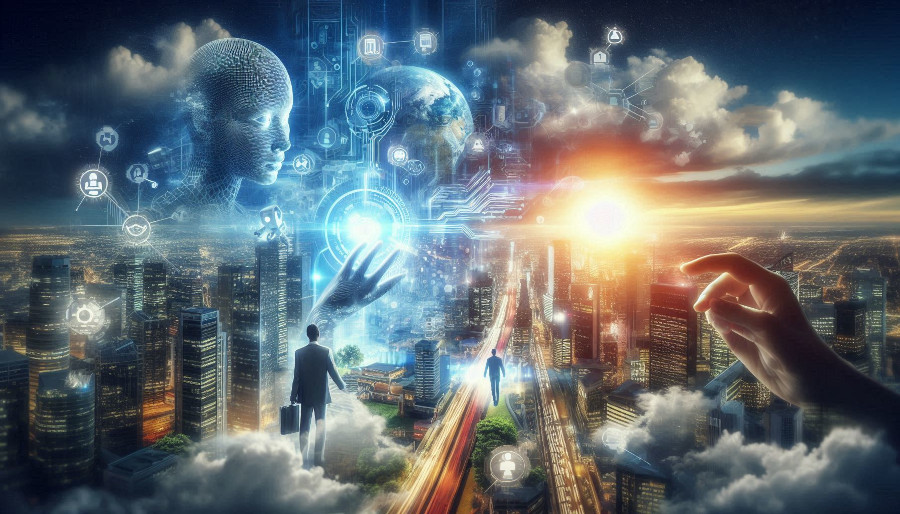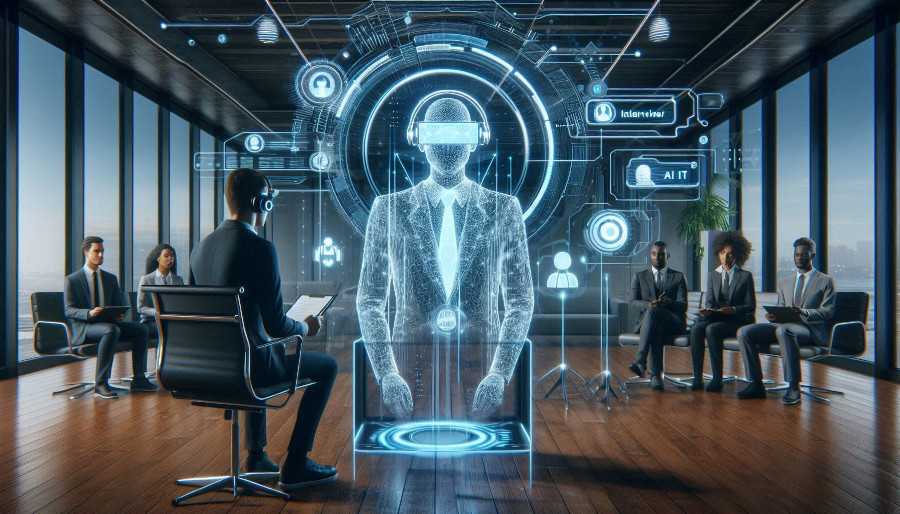The Impact of AI on the Future of Work: A Comprehensive Guide
-
 Mark Dewan
Mark Dewan - 06 Apr, 2024

The Impact of AI on the Future of Work: A Comprehensive Guide
Artificial Intelligence (AI) is rapidly transforming industries across the globe, and the world of work is no exception. As AI technologies continue to advance, they are reshaping job markets, altering skill requirements, and creating new opportunities. In this comprehensive guide, we will delve into the profound impact of AI on the future of work, exploring its potential benefits, challenges, and implications for individuals and organizations. For a broader look at the future, read our article on the future of work.
The Evolution of AI in the Workplace
AI has come a long way since its inception. Early forms of AI, such as rule-based systems, were limited in their capabilities. However, advancements in machine learning, natural language processing, and computer vision have led to the development of more sophisticated AI systems. Today, AI is being used to automate tasks, analyze data, and make intelligent decisions.
AI’s Impact on Job Markets
Job Displacement and Creation:
- Automation of Routine Tasks: AI-powered automation is eliminating many routine and repetitive tasks, leading to job displacement in certain industries.
- Creation of New Jobs: However, AI is also creating new jobs, particularly in fields like data science, machine learning, and AI ethics.
Skill Shift:
- Demand for Soft Skills: As AI takes over routine tasks, the demand for soft skills such as creativity, critical thinking, and problem-solving will increase.
- Technical Skills: A strong foundation in technology and digital literacy will be essential for navigating the AI-driven workplace.
Changing Nature of Work:
- Remote Work and Flexible Schedules: AI-powered tools enable remote work and flexible work arrangements, leading to a more decentralized workforce.
- Increased Productivity and Efficiency: AI can automate tasks, reduce errors, and improve decision-making, leading to increased productivity and efficiency.
AI in the Workplace: A Closer Look
AI-Powered Recruitment:
- Automated Resume Screening: AI-powered tools can quickly scan and analyze resumes, identifying the most qualified candidates.
- Video Interviewing: AI-powered video interviewing platforms can conduct initial screening interviews, saving time and resources.
AI-Powered Training and Development:
- Personalized Learning: AI-powered learning platforms can tailor training programs to the specific needs of individual employees.
- Real-time Feedback: AI-powered tools can provide real-time feedback on performance, helping employees improve their skills.
AI-Powered Decision-Making:
- Data-Driven Insights: AI can analyze large datasets to identify trends, patterns, and insights that can inform decision-making.
- Predictive Analytics: AI-powered predictive analytics can forecast future trends and help organizations plan for the future.
Ethical Considerations and Challenges
While AI offers numerous benefits, it also raises ethical concerns. Some of the key challenges include:
- Job Displacement: The potential for job displacement due to automation is a significant concern.
- Bias and Discrimination: AI algorithms can perpetuate biases if they are trained on biased data.
- Data Privacy and Security: The collection and use of personal data raise privacy concerns.
- Lack of Transparency: AI models can be complex and difficult to understand, making it challenging to explain their decision-making processes.
Preparing for the Future of Work
To thrive in the AI-driven future, individuals and organizations must adapt to the changing landscape. Here are some key strategies:
- Lifelong Learning: Continuously update your skills and knowledge to stay relevant.
- Embrace Digital Literacy: Develop strong digital skills, including data analysis, programming, and AI literacy.
- Cultivate Soft Skills: Soft skills like creativity, critical thinking, and emotional intelligence will be increasingly valuable.
- Build Strong Relationships: Networking and building strong relationships with colleagues and mentors is essential.
- Embrace Change and Innovation: Be open to new ideas and technologies.
- Ethical AI: Promote the ethical development and use of AI to ensure a fair and equitable future.
Conclusion
The future of work is being shaped by AI, and it’s crucial to understand its implications. By embracing AI and adapting to the changing landscape, we can harness its potential to create a better future for all. To understand how this collaboration will work, read about the future of human-AI collaboration in job search.
Useful Resources:
- World Economic Forum: https://www.wef.org/
- McKinsey Global Institute: https://www.mckinsey.com/mgi/overview
- Harvard Business Review: https://hbr.org/
- MIT Sloan Management Review: https://sloanreview.mit.edu/
- Coursera: https://www.coursera.org/
- edX: https://www.edx.org/
By staying informed and proactive, we can navigate the challenges and opportunities presented by AI and create a more prosperous and equitable future.


